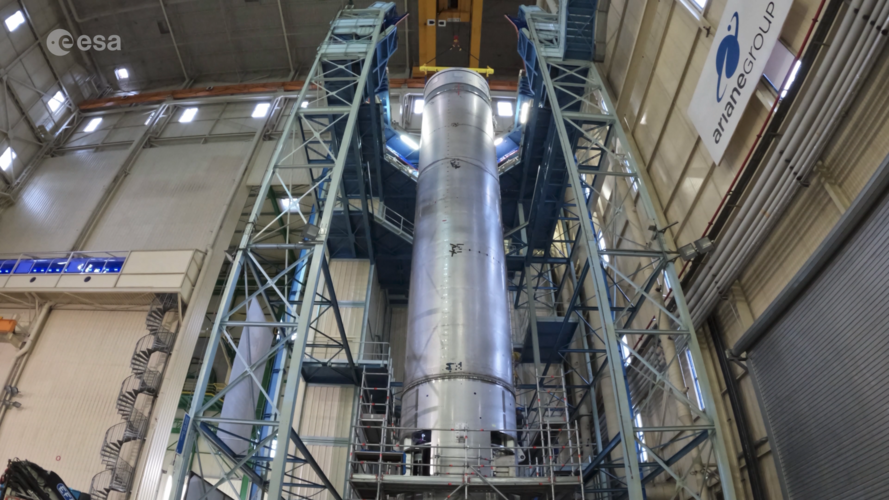
Copernical Team
FAA issues License Authorization for SpaceX Starship Flight 7
 The Federal Aviation Administration (FAA) has issued a license modification permitting SpaceX to conduct multiple missions of its Starship/Super Heavy vehicle under the Flight 7 mission profile. The FAA confirmed that SpaceX met all safety, environmental, and licensing requirements necessary for this upcoming suborbital test flight.
"The FAA continues to increase efficiencies in our licens
The Federal Aviation Administration (FAA) has issued a license modification permitting SpaceX to conduct multiple missions of its Starship/Super Heavy vehicle under the Flight 7 mission profile. The FAA confirmed that SpaceX met all safety, environmental, and licensing requirements necessary for this upcoming suborbital test flight.
"The FAA continues to increase efficiencies in our licens Trump-Musk alliance should boost 'space economy'
 Next year could be a transformative one for U.S. space exploration, as the election of Donald Trump to the presidency and his close relationship with SpaceX founder and CEO Elon Musk promises to change the space paradigm.
The billionaire's influence over space policy, already strong under outgoing President Joe Biden, will most likely deepen in what many analysts believe will be a year of
Next year could be a transformative one for U.S. space exploration, as the election of Donald Trump to the presidency and his close relationship with SpaceX founder and CEO Elon Musk promises to change the space paradigm.
The billionaire's influence over space policy, already strong under outgoing President Joe Biden, will most likely deepen in what many analysts believe will be a year of NASA again delays return of astronauts stranded on space station
 Two US astronauts stranded for months on the International Space Station will remain there at least until late March, NASA said Tuesday as it announced another delay in the mission to bring them home.
Veteran astronauts Butch Wilmore and Suni Williams arrived at the ISS in June aboard Boeing's Starliner spacecraft, and were due to spend eight days on the orbiting laboratory.
But problems
Two US astronauts stranded for months on the International Space Station will remain there at least until late March, NASA said Tuesday as it announced another delay in the mission to bring them home.
Veteran astronauts Butch Wilmore and Suni Williams arrived at the ISS in June aboard Boeing's Starliner spacecraft, and were due to spend eight days on the orbiting laboratory.
But problems NASA sees progress on Starlab commercial space station development
This request seems a bit unusual, so we need to confirm that you're human. Please press and hold the button until it turns completely green. Thank you for your cooperation!
Press and hold the button
If you believe this is an error, please contact our support team.
185.132.36.159 : 00d4e936-eaf0-454f-978d-84468df7
SpaceX aims for 3 rocket launches, 1 Dragon landing in 20 hours
This request seems a bit unusual, so we need to confirm that you're human. Please press and hold the button until it turns completely green. Thank you for your cooperation!
Press and hold the button
If you believe this is an error, please contact our support team.
185.132.36.159 : cd3aebb8-49a5-42f2-af18-5dfeff28
Brain cells mature faster in space but stay healthy: ISS study
This request seems a bit unusual, so we need to confirm that you're human. Please press and hold the button until it turns completely green. Thank you for your cooperation!
Press and hold the button
If you believe this is an error, please contact our support team.
185.132.36.159 : f71afa96-ce40-49db-8845-0b830eba
NASA finalizes strategy for sustaining human presence in low Earth orbit
This request seems a bit unusual, so we need to confirm that you're human. Please press and hold the button until it turns completely green. Thank you for your cooperation!
Press and hold the button
If you believe this is an error, please contact our support team.
185.132.36.159 : 618c9270-f68c-403a-9069-8db32766
Building concrete on Mars from local materials
This request seems a bit unusual, so we need to confirm that you're human. Please press and hold the button until it turns completely green. Thank you for your cooperation!
Press and hold the button
If you believe this is an error, please contact our support team.
185.132.36.159 : 04a8df36-2988-4e65-bc95-68034ab4
Image: Artemis II core stage moves to High Bay 2
This request seems a bit unusual, so we need to confirm that you're human. Please press and hold the button until it turns completely green. Thank you for your cooperation!
Press and hold the button
If you believe this is an error, please contact our support team.
185.132.36.159 : 0fd095ac-be2c-45a7-a5c1-6606f8e1
Fit-check timelapse: Themis reusable rocket stage demonstrator
 Video:
00:01:20
Video:
00:01:20
In December 2024 the first Themis – Europe’s demonstrator of a reusable rocket first stage – completed a ‘full fit-check’ standing tall at ArianeGroup’s facility in Les Mureaux, France.
This step in the rocket development proves that all main elements fit together as planned, confirming the mechanical connections and interfaces from the lower to the upper parts of the rocket stage connect smoothly and as intended.
The 28-m tall model includes the main elements for Themis such as the engine bay, the fuel tanks, the flight control bay and the upper part. It is powered by the new-generation European Prometheus, an
